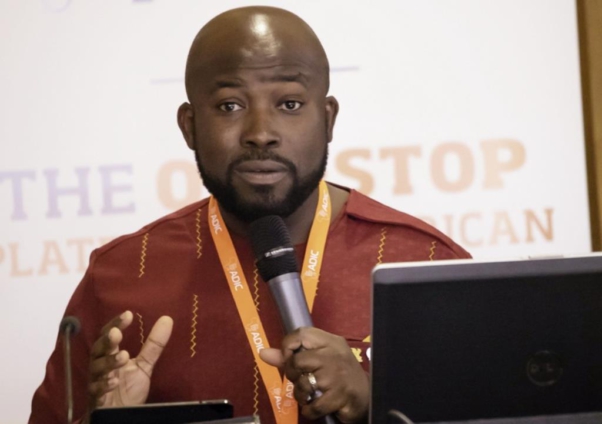The Chief Executive of the Ghana Chamber of Bulk Oil Distributors (CBOD), Senyo Hosi has proposed the passage of legislation to enforce the display of safety compliance ratings at all petroleum filling stations in the country.
This, he says, will help ensure public safety and minimize accidents such as the one that occurred on June 3, 2015, at the GOIL filling station near the Kwame Nkrumah Interchange in Accra.
Mr Hosi was speaking at the launch of the Association of Oil Marketing Companies’ Annual Safety Week (ASWEC) Celebration in Accra.
“As a customer, will it be great or viable for me to just get to a station, possibly just see these particular ratings and [know] that these are the standards that have been set by the [Association of Oil Marketing Companies] together with the National Petroleum Authority?"
“There’s a reason why the GOIL station at Circle, which was flooded, was part of the June 3 disaster [but] the Shell, located opposite, did not have that particular problem,” Mr Hosi said.
He said while GOIL is one of the most safety-compliant companies in Ghana, that particular station at the then Kwame Nkrumah Circle, was not compliant enough. And the failure to comply with regulations contributed to the accident in which 150 people were killed and several others injured. Many of them, scarred and deformed for life.
He expressed disappointment in the fact that no person or entity has been held accountable for fatal incidents that have occurred in the downstream petroleum industry. Some of these accidents, he noted, have caused immense damage and trauma to the surviving victims.
Mr. Hosi said displaying compliance ratings at filling stations will not only help reduce the spate of safety related incidents, but will also allow the public to know who to hold accountable when their safety is compromised.
“And when companies are dropping in their ratings, clearly, consumers can take certain actions that will hold them accountable,” he said.
Mr. Hosi suggested that transparency, enforcement and accountability will ensure that everyone in the petroleum value chain is educated on the right steps to take to ensure such disasters become a thing of the past, and that when disaster strikes, the right people will be held accountable.
“You can be sure of the CBOD’s partnership in trying to deliver that,” he said. “We can’t have a safe industry unless we ensure transparency, we ensure proper education and more importantly, accountability.”
ASWEC was institutionalised in 2017 with the cardinal objective of educating members of the AOMCs as well as the public on health, safety, and environment-related issues within the downstream petroleum industry.
The 2021 edition was organised under the theme; “Reinforcing Positive Behaviour at the Workplace to Achieve the Greatest Participation of Safety in this Era of the Covid-19 Pandemic”.
ASWEC 2021 was chaired by the Director-General of the Ghana Standards Authority, Professor Alex Dodoo, who called on Petroleum Service Providers (PSPs) to strive to adhere to ISO 45001, the international standard for occupational health and safety, issued to protect employees and visitors from work-related accidents and diseases.
Latest Stories
-
NYA CEO demands shisha ban
30 minutes -
SHS girl shot dead at Bimbilla Fire Festival celebration
2 hours -
No firearms at Fire Festival – Small Arms Commission warns
2 hours -
Education Minister promises increase in Students Loan Trust Fund allocation from GH¢70m to GH¢150m
3 hours -
Stronger cedi, lower prices: Decathlon Ghana slashes prices by 35% on over 500 sports items
4 hours -
Zoomlion deepens Africa expansion with strategic partnership in Kenya
4 hours -
Stronger cedi, lower prices: Decathlon Ghana slashes prices by 35% on over 500 sports items
4 hours -
“Love on the Ropes”- Ebo Whyte impresses again with rollercoaster of love, lies and live band fire
5 hours -
Nzema East Blue Water Guards partner Axim police to foil galamsey operations around Draw River Forest Reserve
5 hours -
Minerals Commission orders Heath Goldfields to cease operations at Bogoso-Prestea Mine amidst possible license revocation
5 hours -
Ghana Music Awards Europe adds ‘Best Political Song’ category to 2025 edition
7 hours -
Azumah Resources refutes claims of selling Black Volta Gold Project
7 hours -
GFA boss Kurt Okraku appointed President of CAF Inter-Club Competitions
7 hours -
More HIV patients not on treatment – New report reveals
8 hours -
NSMQ 2025: A deep dive into Bono, Bono East and Ahafo schools eyeing national glory
9 hours

